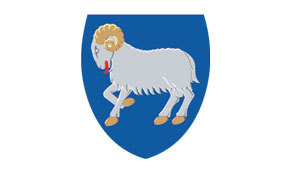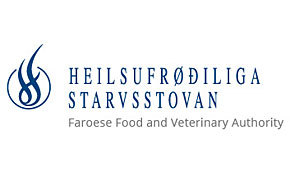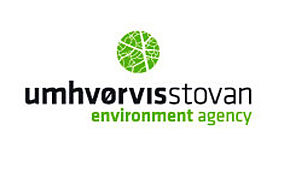Aquaculture – Legislation and Management
In 2003, the Faroe Islands implemented some of the world's most stringent and comprehensive veterinary regulations for the Faroese aquaculture industry.
The Faroese Veterinarian Act on Aquaculture is now used as inspiration and guidance for the implementation of sustainable aquaculture standards in other countries around the world.
The main goal of the Faroese Veterinarian Act on Aquaculture is to create the most productive environment for sustainable fish farming in the world. This legislation ensures that the Faroese aquaculture industry complies with the highest possible standards of fish welfare and environmental protection.
These regulations ensure the welfare of the fish and protect them from disease and pressures – natural and external - and is instrumental in ensuring the quality of the fish.
The veterinary prevention programme has been highly effective. Globally, the Faroese aquaculture industry has some of the very best biological results in fish farming and farmed salmon from the Faroe Islands is today free from any antibiotics.
The Faroese Ministry of Trade is the government authority responsible for the policy and maintains the legislative framework for the aquaculture industry.
The Faroe Islands are also highly invested in the conservation of wild salmon populations in Faroese waters and play an active role in international efforts.
Despite the relatively large stock of wild salmon that gathers just north of the Faroe Islands to feed, the Faroese do not exploit their right to fish for wild salmon. To help maintain the population, these wild salmon are allowed to fatten before they move on to European rivers to spawn.
Fish Farming Licences
To ensure sustainability, the number of licenses issued to farm fish in the Faroe Islands are strictly limited, as are the locations where aquaculture is allowed.
The areas allocated for aquaculture are determined according to decades of experience and extensive research is done to determine the volume of fish that can be farmed sustainably in any given area.
The responsibility for overseeing aquaculture licenses in the Faroe Islands lies with the Ministry of Trade and each aquaculture company must have prior approval from the Faroese Environment Agency.
A licence issued by the Faroese Food and Veterinary Authority is required to buy, build, restructure, expand and/or operate a farm intended for the rearing of fish.
Rearing fish that do not require actual physical farm installations also requires a license. Licenses for fish farming are only issued when minimum requirements have been met.
These include measures to prevent negative environmental impact, ensure responsible working conditions, and maintain the required high standards for animal welfare and hygiene.
Stringent veterinary monitoring
The health and welfare of the fish has a high priority in Faroese fish farming policies, as does disease prevention.
Even though the Faroe Islands are not part of the European Union (EU), they do have an agreement with the EU regarding veterinary matters, meaning that Faroese veterinary regulations are aligned with those of the EU. A component of this agreement is the inclusion of the Faroe Islands in the EU’s internal veterinarian zone.
Because Faroese farmed salmon complies with all EU mandates and directives it can be exported to EU without having to pass any border controls.
All import of animal livestock used in aquaculture must be approved before entering the Faroe Islands. This approval is dependent on the disease status of the exporting country. In addition to this, existing EU rules, regulations and procedures must be adhered to.
The Faroese Food and Veterinary Authority is responsible for veterinary matters in relation to the fish farming industry.
The Food and Veterinary Authority monitors health status through all stages of production, from brood stock, egg, fry, smolt to the ready-to-harvest fish, based both on monthly health and biomass reports, as well as on-site inspections.
All transportation of fish, fish products and equipment requires the approval of transportation companies and transport units at all stages of production.
To limit waste, distribution of feed is closely monitored with state-of-the-art cameras and sensors that are installed in the individual pens. The result of this type of innovative technology is that salmon from the Faroe Islands has some of the lowest feed factors of the global aquaculture industry.
The risk of introducing or spreading disease is limited by setting specific requirements for the construction of facilities, ensuring that fish farms are capable of handling all kinds of risk material.
Fish farmers must provide detailed production plans, stipulating the timeframe for introducing smolt to the sea, harvesting and periods of fallow. This means that a farm can only produce one generation of fish in each production cycle.
To enhance fish welfare, the maximum density in aquaculture pens is limited by law. This provides for ample room for the fish to grow and thrive.
The “all in - all out” strategy
Aquaculture legislation in the Faroe Islands is unique as it has implemented an “all in – all out” strategy that is vital to the health of Faroese farmed fish.
This requires that every production site is limited to one generation of fish at a time. All equipment must be fully dismantled and cleaned thoroughly after each generation has been harvested.
The site then has to be reapproved by the Food and Veterinary Agency, after which it lies fallow for a minimum of two months before the next generation can be placed in the fjord or sound in question.
This strategy was implemented to promote two very important goals:
- Limiting the spread of disease, protecting the salmon and enhancing their welfare.
- Protecting the environment and allowing the strong North Atlantic currents to effectively clean the site, while it lies fallow.
Environmental safeguards in aquaculture
Each fish farming company must have environmental approval from the Faroese Environment Agency. The Agency has set up a system that undertakes regular inspections of aquaculture areas in the Faroe Islands. Seabeds in aquaculture areas are also consistently monitored through this system.
Before starting any activity, fish farming companies are obliged to test the health of the ocean floor, both immediately underneath the pens, as well as in the surrounding area. Subsequently, these tests must be repeated annually. The tests are designed to detect any negative environmental impact.
Should the results of these tests prove dissatisfactory, the company must perform corrective measures. In most cases, this means letting the area lie fallow for a while.
The Environment Agency has the authority to restrict use of any given area, should the company fail to take proper measures. Once further tests confirm that the area is again fit for use, the Environment Agency will lift these restrictions.
The law also requires that the quality of the environment is measured on a regular basis. Fish farming companies must implement an internal control protocol as part of their obligations for environmental approval. The consistent monitoring of the water and seabed must be part of this protocol.
There are limitations on certain elements, meaning that a site cannot be used if levels of heavy metals become too high or too much organic matter has accumulated. Operations may continue only when the state of the seabed has normalized.
Fish feed
Fish feed is produced in the Faroe Islands and complies with all relevant EU veterinary directives and regulations regarding production and use in fish farming.
Fish feed produced in the Faroe Islands is also exported to Norway and Scotland. Some of the feed required for the Faroese fish farming market is also imported, mainly from Norway.
Feed used in the Faroese fish farming industry originate strictly from NON-GMO sources.
Complete traceability
Due to its regulated structure, the Faroese aquaculture industry has complete traceability - from roe to export – including the feed used in Faroese aquaculture. This helps assure the consumer of the sustainability of Faroese farmed fish products.
Breach of containment
Breach of containment is taken very seriously in the Faroe Islands and the aquaculture industry makes significant efforts to prevent it.
The Faroese Veterinarian Act on Aquaculture implements stringent and exact protocols for companies to follow to prevent and limit any potential breach. Breach of containment must not occur, and measures must be taken to prevent any breach, including regular inspection of nets and pens and preventing other animals, such as birds, from accessing the pen.
Fish farming companies are required to have a contingency plan in case of any breach of containment and this plan must be approved by the Food and Veterinary Agency.
Should a breach of containment occur, it must be reported to the Food and Veterinary Authority and accurate records must be kept of every instance.
If the owner of a fish farming company even suspects a breach of containment, they are obliged to notify the Food and Veterinary Authority.
Once a breach of containment is reported, the risks involved must be assessed. Upon such assessment, the Ministry of Health and Interior can command the relevant company to attempt to catch all lost fish.
It is the responsibility of the owner of the fish farm to comply with this command upon orders from the Food and Veterinary Authority.



